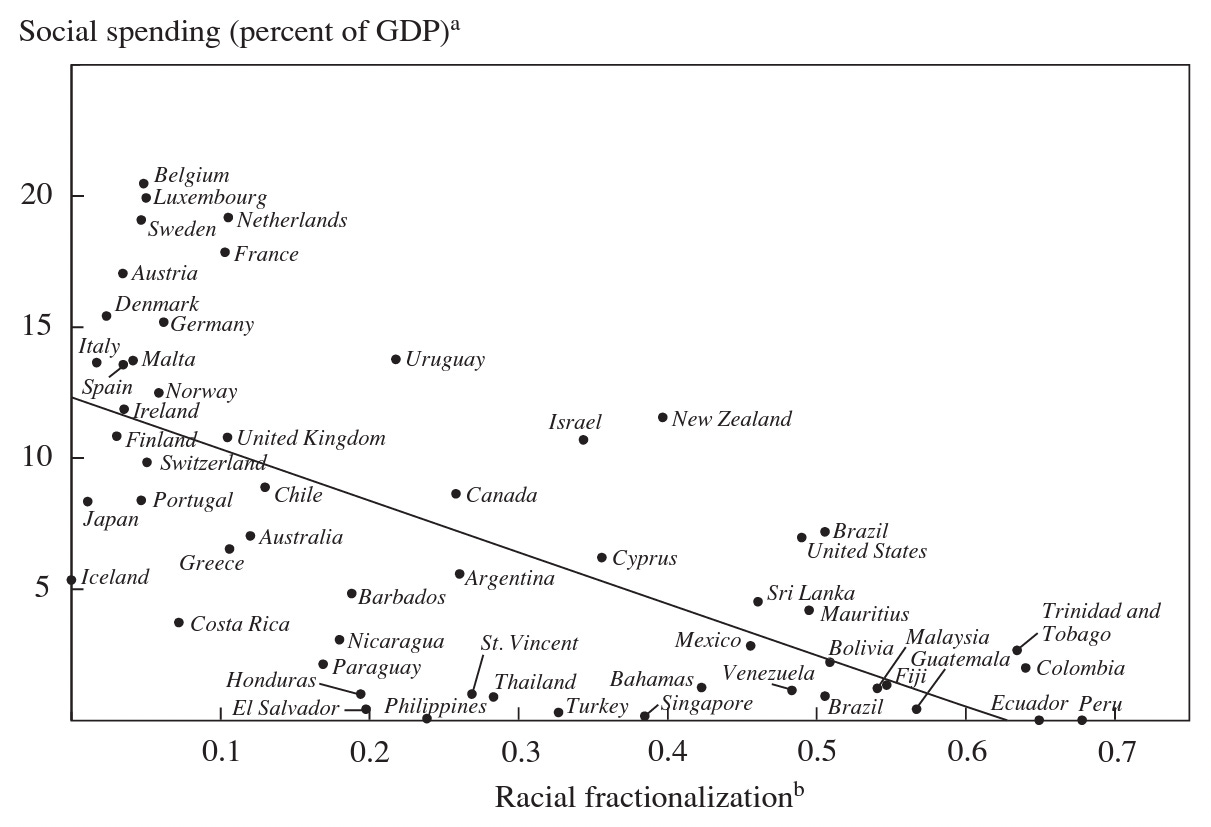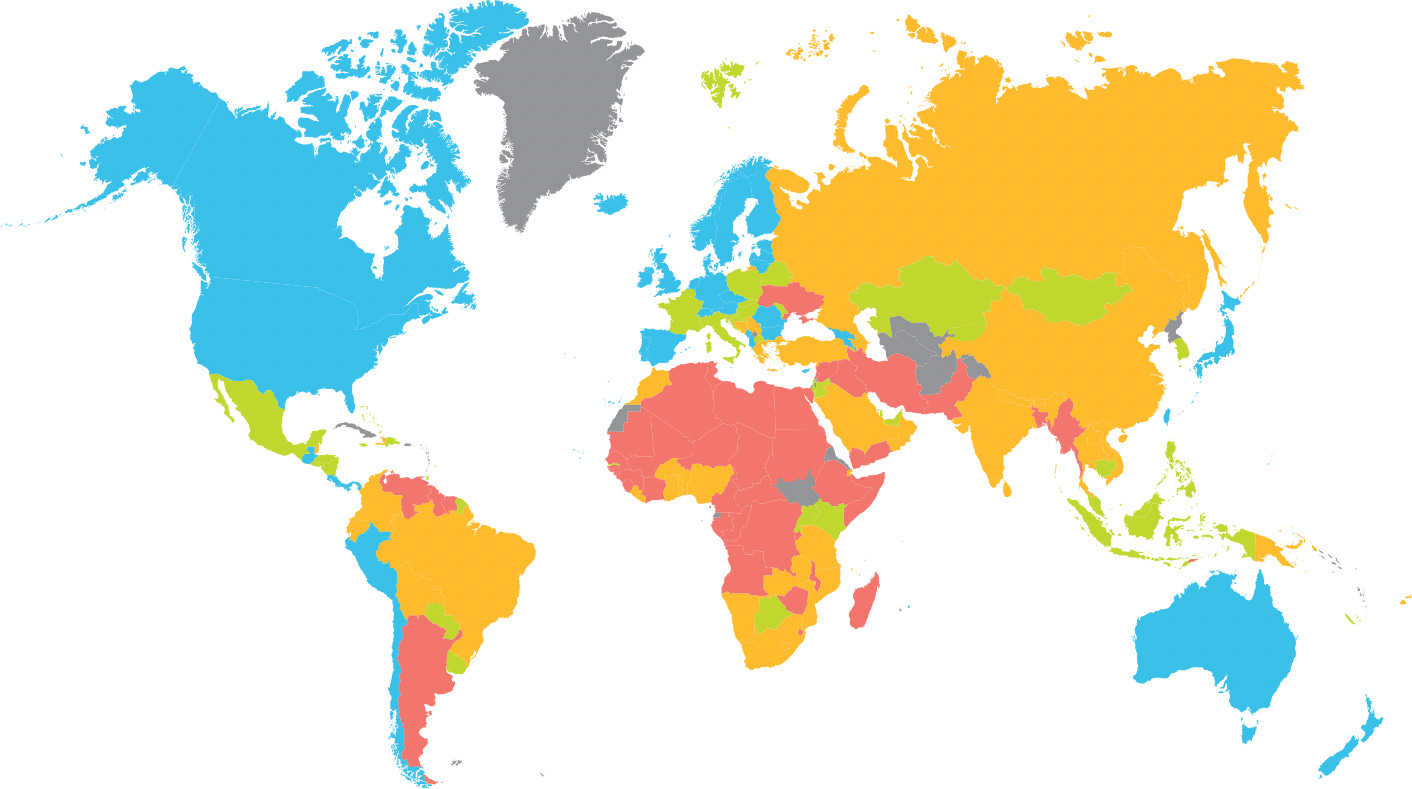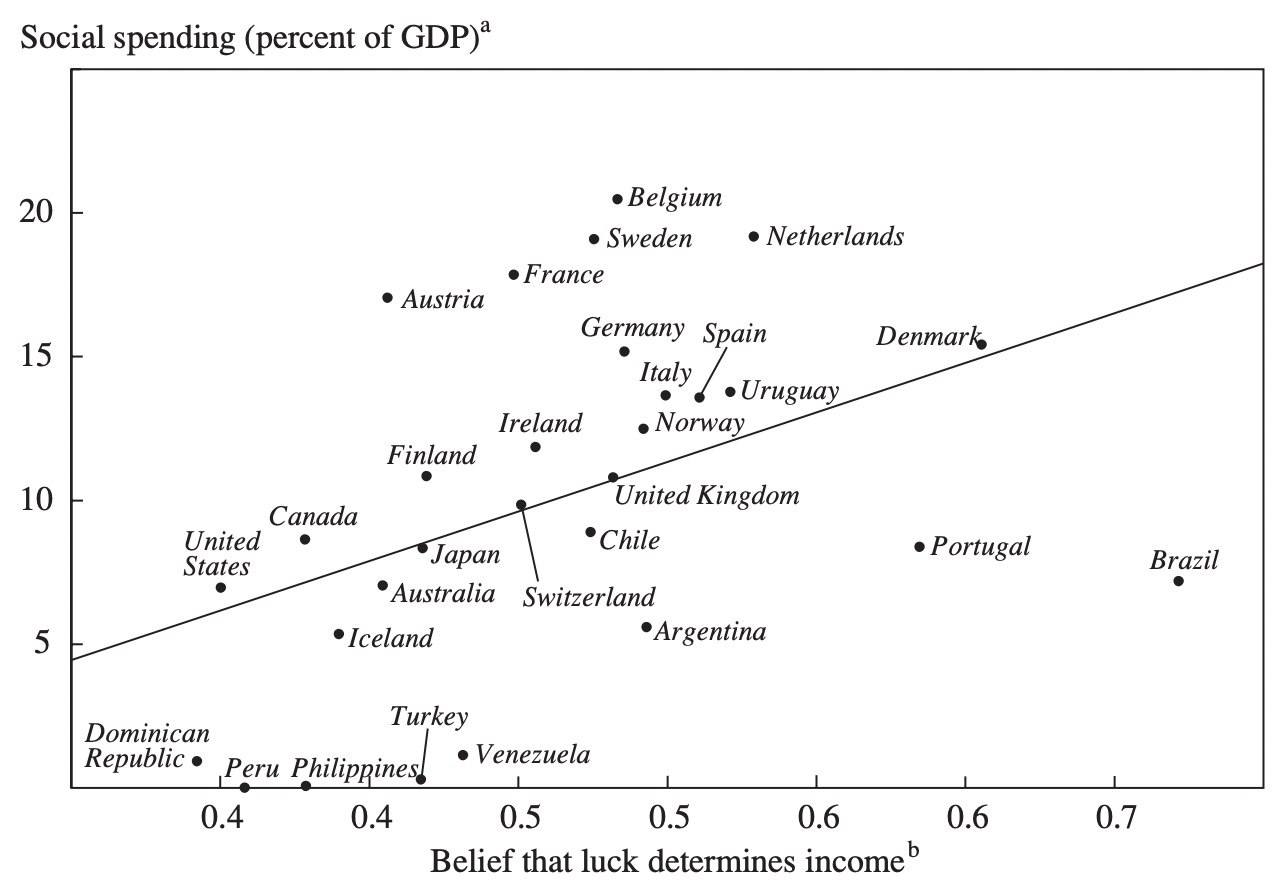NOTE: I now write for Aporia Magazine. Please sign up there!
I’m a big fan of Richard Hanania’s writing as he always has something interesting and provocative to say. Last time I critiqued his essay ‘Russia as the “Great Satan” in the Liberal Imagination’. Here I critique his latest article, titled ‘Diversity Really is Our Strength’.
Hanania’s argument is summed up in the article’s subheading: ‘Immigration destroys social cohesion. Good.’ The reason this is good, he argues, is that social cohesion makes people more willing to support redistribution, and redistribution is bad for economic growth. In his view, we shouldn’t be concerned about “how many immigrants are currently coming to the United States, or the characteristics of newcomers”. In fact, “we should be letting a lot more people in”.
Under the heading ‘American Exceptionalism’, Hanania shows a chart of GDP per capita against national IQ, pointing out that “the US is the largest outlier in the positive direction for any large nation”. So in addition to being one of the world’s richest countries, America is even richer than you’d expect based on its average IQ. Hanania goes on to note that most US states (including very diverse ones) are richer than every major country in Europe, as well as Japan and South Korea.
“What’s going on here,” he writes, “is that the US has freer markets than most other advanced countries”. It has “less government spending as a percentage of GDP, a weaker social safety net, and fewer economic regulations”. Why does it have these things? Ethnic diversity – apparently.
This is a version of the argument first made by Alberto Alesina and colleagues in their 2001 paper ‘Why Doesn’t the United States Have a European-Style Welfare State?’ Based on charts like the one below, they observed that “racial cleavages seem to serve as a barrier to redistribution throughout the world”. And regarding the US, they concluded that “the disproportionate representation of ethnic minorities among the poor clearly played a major role in limiting redistribution”.

However, the problem for Hanania is that his version of the argument doesn’t work. He’s suggesting that ethnic diversity not only undermines support for redistribution, but also undermines support for other anti-market policies. Yet there’s little evidence for this.
(As an aside, it’s not entirely clear what he’s arguing. He ends the section ‘American Exceptionalism’ talking about America’s “freer markets”, but then only discusses welfare and entitlements in the section ‘Why We Didn’t Become a Social Democracy’. So he doesn’t explicitly say that lack of social cohesion undermines support for other anti-market policies, but that would have to be the implication for his argument to make sense.)
The mechanism by which ethnic diversity undermines support for redistribution is straightforward: people are groupish and they don’t want to share resources with groups they don’t belong to. By contrast, there’s no obvious mechanism by which ethnic diversity would undermine support for, say, government regulation. In fact, there are mechanisms by which it would do the opposite. For example, if ethnic diversity leads to lower trust, then it would increase the demand for regulation.
Incidentally, there are also mechanisms by which ethnic diversity would lead to other undesirable things, like sectarian conflict. So even if it was good for growth, that benefit might be outweighed by other considerations.
Hanania links to the Fraser Institute’s economic freedom index, which shows the US to be one of the freest countries in the world. However, lack of redistribution is just one aspect of economic freedom. The Fraser Institute’s index distinguishes five: size of government; property rights; sound money; free trade; and regulation. When you take them all into account, there’s no evidence that diverse countries (those on the right-hand side of the chart above) are more economically free. Here’s a map:

A map of the Heritage Foundation’s economic freedom index looks very similar. The most diverse countries tend to be the least economically free. And with a few exceptions (like the former British colonies of Hong Kong and Singapore) those with northern European populations tend to be the most economically free. Even the Nordic countries, which have some of the highest levels of redistribution in the world, are among the most economically free; they make up for large government spending with pro-market policies in other areas.
The strong relationship between economic freedom and northern European demographics is partly a function of high average IQ and partly a function of WEIRD psychology.
What’s more, the two indexes mentioned above allow you to track economic freedom over time, and they both show that America’s has been falling. The Fraser Institute’s index records a relatively small drop from 8.7 in 2000 to 7.97 today. The Heritage Foundation’s index records a somewhat larger drop from 81.2 in 2006 to 70.6 today. So there’s no evidence that America has become more economically free as it has gotten more diverse.
One final point I’d make is that even if diversity undermines support for redistribution in most contexts, this doesn’t mean it will do so in the contemporary US. Why not? according to Alesina and colleagues, another reason why the US lacks a European-style welfare state is that Americans are, or were, much less likely to say that luck determines income. Back in the 90s, they scored lower on this measure than citizens of all other Western countries.

A plausible explanation for this pattern is that the Europeans who originally settled America, and to a lesser extent those who arrived at the turn of the last century, were selected for traits like individualism and internal locus of control. If today’s immigrants are less selected in this way, as seems likely, an increase in their share of the population would lead to higher support for redistribution, not lower.
America’s demographics are trending away from those of northern Europe and toward those of Brazil. Although Brazil does have less redistribution than northern Europe, it has lower economic freedom overall. Which should lead us to expect that America’s economic freedom will correspondingly decline. And in the long run, it’s economic freedom that matters for growth.
Image: New York City Stock Exchange, 2012
Thanks for reading. If you found this newsletter useful, please share it with your friends. And please consider subscribing if you haven’t done so already.





Posted this response on Notes before Noah graciously granted me a subscription. Reposting here:
I talked to some economists about this, they said regardless of what Heritage says, the US is more economically free than almost all other developed states. Even Heritage agreed until a few years ago. And this is especially true when it comes to labor markets, which I think is most important. I also checked against historical spending as percentage of GDP, and US still comes out looking more capitalist.
It’s interesting to note that Kevin MacDonald, a white nationalist, has, in addition to his infamous writings about Jews, also written about the egalitarian psychology of whites that lends itself to collectivism. But it’s also true, as you point out, that whites are individualistic. While we may be able to hack a few elections by being open to immigrants, it’s also true that these choices are irreversible. Hopefully, an enlightened elite of East Asians, Asians and whites will join forces to maintain economic liberalism. The idea that whites need immigrants to save us from ourselves seems a bit ironic given that it was whites that made Western lands worth immigrating to in the first place. There is also irony in the fact that economically literate intellectuals like Hanania completely overlook the massive externalities of a lost homeland (a type of consumer good) because it doesn’t feature in basic Econ texts in our PC world. In that sense, Hanania is like economist Paul Samuelson, who argued that gambling was a waste of money because the house always wins (i.e. he ignored the fact that people enjoy gambling, which is its own reward).